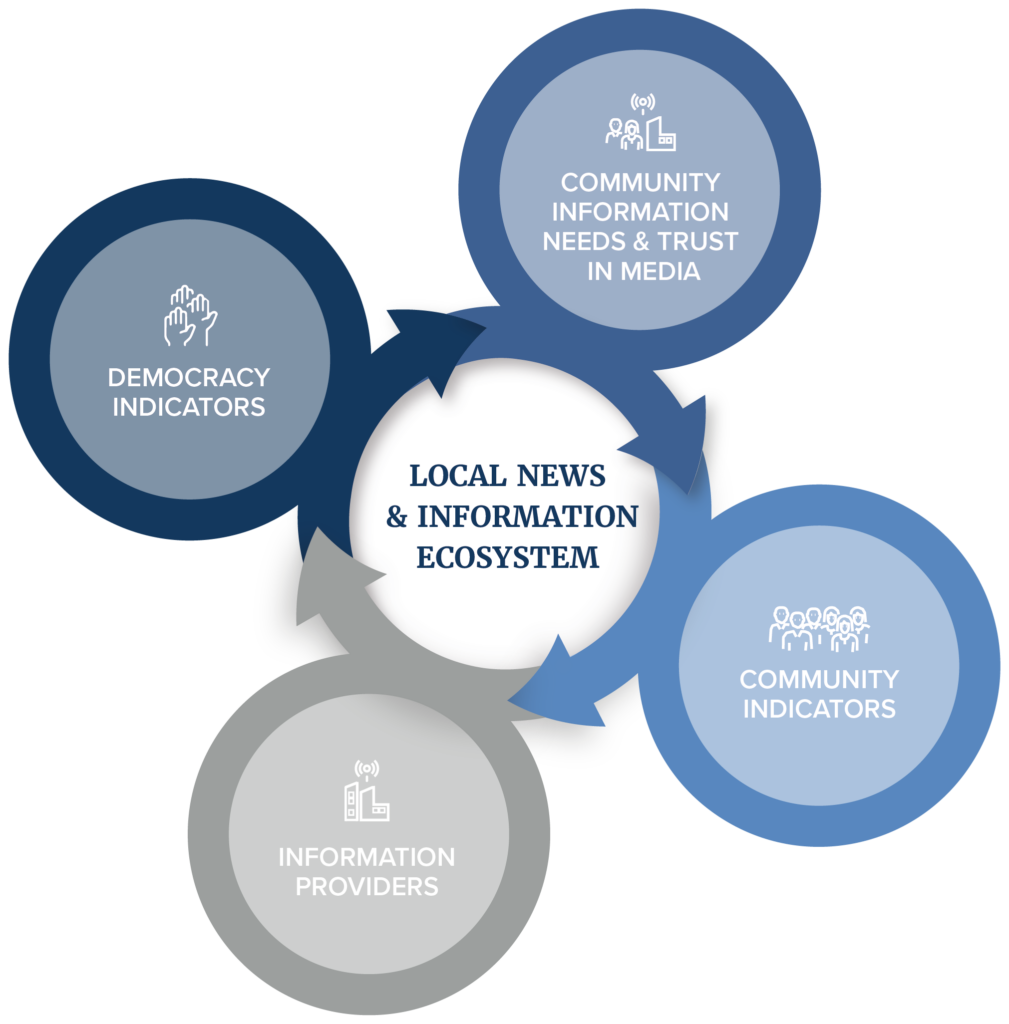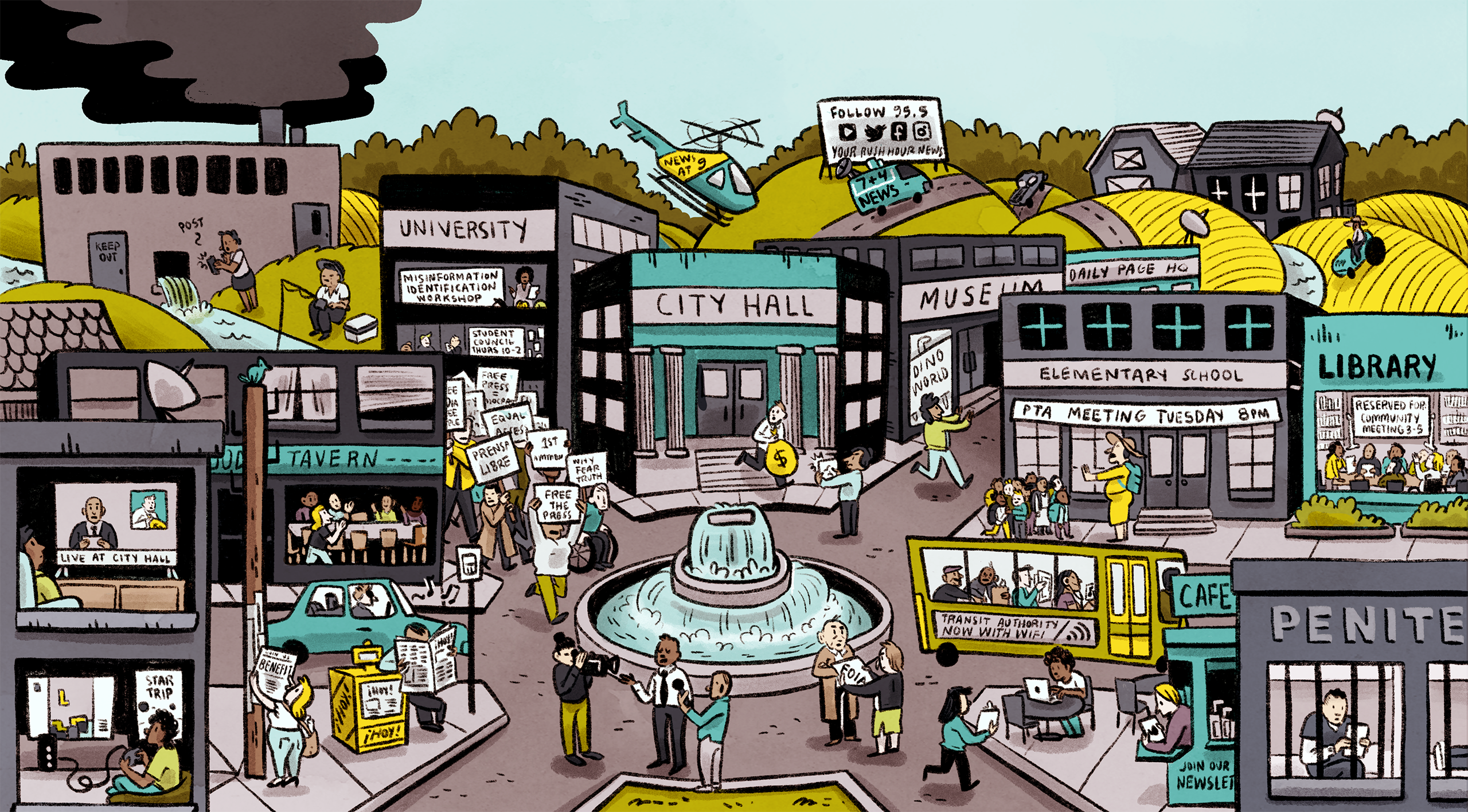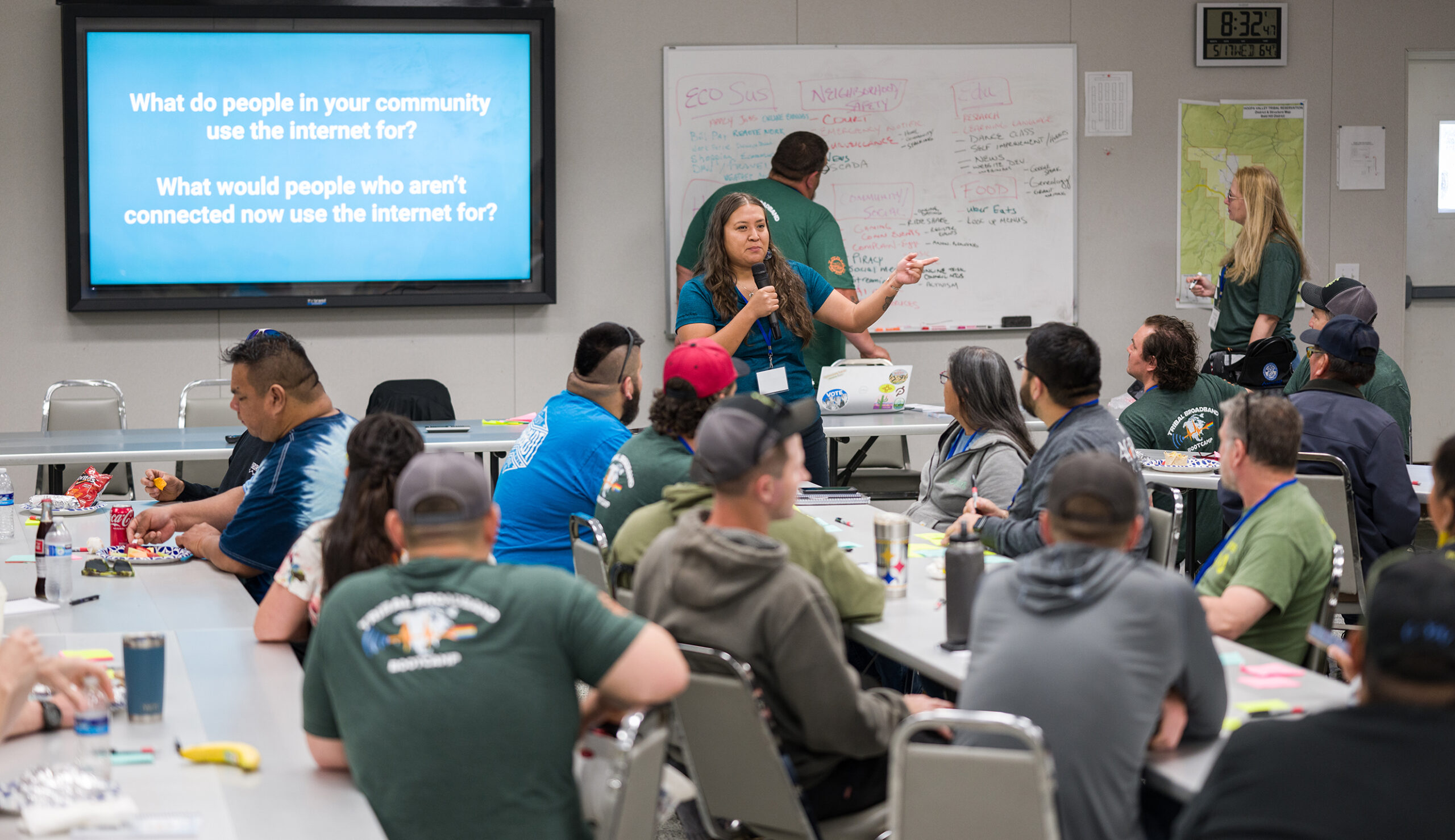I want to end the year on a note of gratitude and pride for the many ways our community came together to defend and advance a democracy that is open, just, resilient, and trustworthy for all Americans. While I am clear-eyed about the threats facing us and the hard work ahead, I remain determined to stand up for our democracy in these challenging times.
This year, Democracy Fund celebrated its tenth anniversary as an independent grantmaking foundation. Along with our partner organization, Democracy Fund Voice, we have made more than $425 million in grants to promote free elections, a just society, an equitable public square, and accountable government institutions. I would be remiss to end the year without expressing my deep gratitude to all the grantees, partners, and staff that have helped to build this remarkable institution and community of fierce democracy advocates.
This decade has profoundly shaped our democracy, our organization, and my growth as a leader. My understanding of philanthropy’s role in empowering change has evolved along the way. In the face of rising threats to our democracy, I am sharing five lessons I’ve learned, hoping they’ll be valuable to others in the field.
1. Funders can’t shy away from tough conversations — or bold action — in defense of our values.
Many in the philanthropic field are worried about the rising critiques against progressive philanthropy and the emerging threats against the causes and communities many of us hold dear — from immigration, to the LGBTQ+ community, racial justice, and so many more.
Democracy Fund and Democracy Fund Voice stand strong in our commitment to an inclusive, multiracial democracy. We will not back down. Our work is part of a long tradition of fighting for a democracy that truly represents and serves all Americans — a democracy that we have never yet achieved.
It took a lot of learning on our part to get to where we are today. Ten years ago, Democracy Fund and Democracy Fund Voice started with a bipartisan approach, and an incremental and reformist mindset. We thought that broader political buy-in to reforms would be key to improving resilience over time. But that’s not what happened.
We soon realized that we would need to fundamentally revisit our thinking if we wanted to continue to live within our values. We wrestled through a series of tough conversations that resulted in us “declaring independence” from bipartisanship and creating a new organizational framework in 2021. The process of articulating a more explicit set of core values and a bolder perspective on the fundamental inequities of our democracy transformed our strategy, our staff, our organizational culture, and our position in the field.
I am proud we did not shy away from asking ourselves difficult questions about who we were and what it would take to pursue impact as the world changed around us. Doing this work provided us with a clear rallying point around which to stand boldly in defense of our values and our grantees.
As our sector faces new and emerging challenges today, we have revisited this experience and are in the process of articulating a set of principles to guide our posture moving forward. I encourage our philanthropic peers to face this moment with deep introspection and determination – and a willingness to let go of the familiar where necessary to make transformative change.
2. How we fund matters — and it’s up to us to give better.
Our grantees’ feedback has consistently been a source of essential learning – and it has not always been easy to hear. I still remember a 2014 grantee assessment that compared Democracy Fund’s grants diligence process to a particularly uncomfortable doctor’s visit.
Listening to our grantees and learning from our partners, we have increasingly shifted our grants application and reporting processes to be less onerous for grantees. We have significantly increased the proportion of our grants that are larger, multiyear, and unrestricted. By implementing new processes such as verbal reporting, we’ve shifted much of the diligence and reporting burden onto our own shoulders. We’ve become better and more supportive grantmakers, and are gratified in these efforts by improved grantee trust.
In recent years, we have embraced opportunities to share these lessons with others. During the COVID-19 pandemic and the racial justice uprisings of 2020, we joined with peer funders in streamlining processes to better support grantees. In 2024, we launched the All by April campaign to encourage philanthropy to release nonpartisan election-related grant dollars earlier in the year. The campaign mobilized more than $155 million in earlier grants and accelerated payments to pro-democracy organizations when they needed it most.
There is much more that can be done. In particular, democracy funders must break the cyclical nature of elections funding, which causes grantees to dismantle and rebuild operations every 2-4 years. We need to provide organizations focused on the slow and necessary work of structural reform and deep community organizing the multi-year grants that can sustain them. Philanthropy’s commitment to democracy must be sustainable and sustained. We must keep our foot on the gas and ensure our field partners know that we have their backs.
3. The philanthropic sector needs to grow — and organize.
In the aftermath of the 2016 election, I spent significant time on the phone with peer donors and new philanthropists who were eager to learn from Democracy Fund and Democracy Fund Voice on how to direct new dollars into the democracy space. With deep subject matter expertise and relationships – as well as the greater capacity to share these with peers given our staffing model – my staff were particularly well positioned to advise new donors in strategy development and to work with the field on ambitious field cultivation efforts. Since then, donor organizing has grown to be a central pillar of our strategy.
Grantees are the best champions of their own work and their strategic direction must always be at the center of our work. However, we’ve learned that funder-to-funder relationships can create a safe place for shared learning and encourage new donors to take meaningful steps toward funding. And, only we can address the broken sector incentives — such as the confusing proliferation of intermediary groups in the elections space – that create inefficiencies and complicate the nonprofit sector’s ability to operate effectively.
Over the years, we have helped spearhead joint funding initiatives like Press Forward, which will invest more than $500 million into local news and information over the next five years, and which reflects an aligned and unified vision among field and philanthropy alike of the change needed in this sector.
In 2025 and beyond, Democracy Fund is committed to both continuing our efforts to increase the size of the overall democracy philanthropy space and to supporting our funder community to be better.
4. We must cultivate our capacity to look ahead.
Our sector was unprepared for the rise of authoritarianism and for the political violence of January 6th, 2021 – but our position in 2024 is profoundly different. Over the past several years, funders and field actors have invested significant resources developing the skills and capacity to imagine multiple futures and engage in scenario planning. These skills have not only laid the groundwork for contingency plans, they have increased our collective dexterity amid uncertainty, allowing us to now step resolutely into a rapidly changing world.
We are proud of our work helping to establish the Trusted Elections Fund as a hub for election crisis planning and response and of having supported the work of countless grantees like Democracy Forward who have built robust plans to respond to the antidemocratic agenda of Project 2025 and other threats. These plans and infrastructure are now ready to be deployed — and philanthropy must be ready to support them.
We must remember these examples as we feel our attention being pulled into the urgent threats ahead. Funders must act swiftly to defend our democracy, our grantees, and the communities that will face threats. And, we cannot allow ourselves to be distracted from the longer-term work that will be critical to our success. It is essential that philanthropy enable the necessary work of envisioning a democracy agenda that can recapture the imagination of the American people and do the long-term work of building community power to achieve that vision.
5. Philanthropy is deeply flawed – and uniquely important in our democracy.
In the past decade, sector leaders like Rob Reich and Edgar Villanueva have led important conversations about the structural flaws and injustices in our field. As a result, philanthropy has gotten more skilled at recognizing and combating the power dynamics inherent in our very existence.
This shift has been profoundly important to me as a leader — and also enabled me to get sharper in articulating why I believe that philanthropy has a significant and legitimate role to play in our democracy. Philanthropy’s unique ability to deploy flexible, risk-tolerant capital makes it a critical catalyst for innovation and rapid response, bridging gaps left by slower government action and profit-focused private industry.
For example, during the COVID-19 pandemic, our community played a key role in supporting a safe and secure 2020 election. Through increased democracy-focused giving, our grantees provided crucial technical assistance and education to local election administrators adopting mail-in voting, implemented health protocols at polling centers, and recruited thousands of much-needed poll workers. While the government focused on vaccine development and rollout, philanthropic support empowered hundreds of nonprofits to help the nation’s democratic practice meet this important challenge.
As our nation faces profound threats to our democracy, it is also important to note that civil society – and the private philanthropy that has supported it – has continuously been at the forefront of protecting and advancing democracy and has a critical role to play going forward. From the nineteenth century fundraising societies that supported the Underground Railroad to the Ford Foundation’s crucial role in supporting the advancement of racial justice in the Civil Rights Movement, philanthropists have served as a counterweight to authoritarianism in our country.
With this history in mind, in this moment philanthropy must protect the civic space in which organizations and leaders can speak, operate, and organize, ensure free and fair elections, and advance the democratic values we hold dear. Even as our own sector may come under scrutiny, we must be prepared to vociferously defend our grantees and our vision for the future.
Looking to 2025
As we look ahead, the challenges we face are significant — but so is the strength of our collective determination. The progress we’ve made this year, and over the past ten, remind us of what is possible when we work together with purpose and conviction. Your dedication fuels our hope for the future and inspires our continued commitment to this work. We will not back down. Together, we will safeguard progress won and lay the foundation for an inclusive multiracial democracy.




